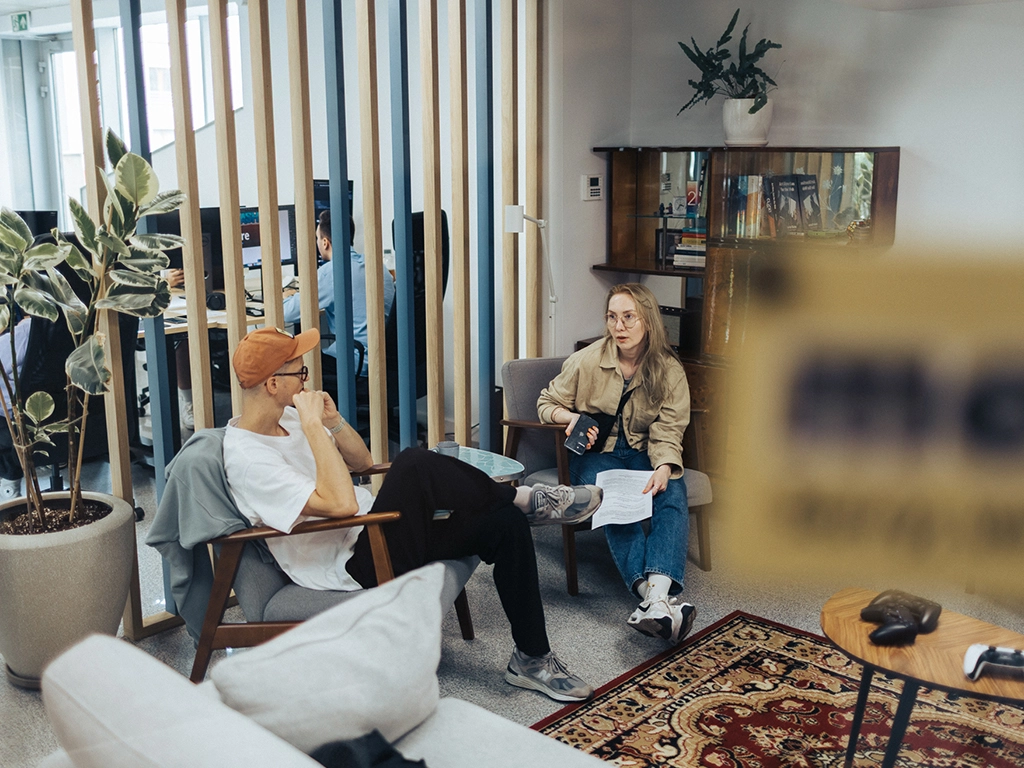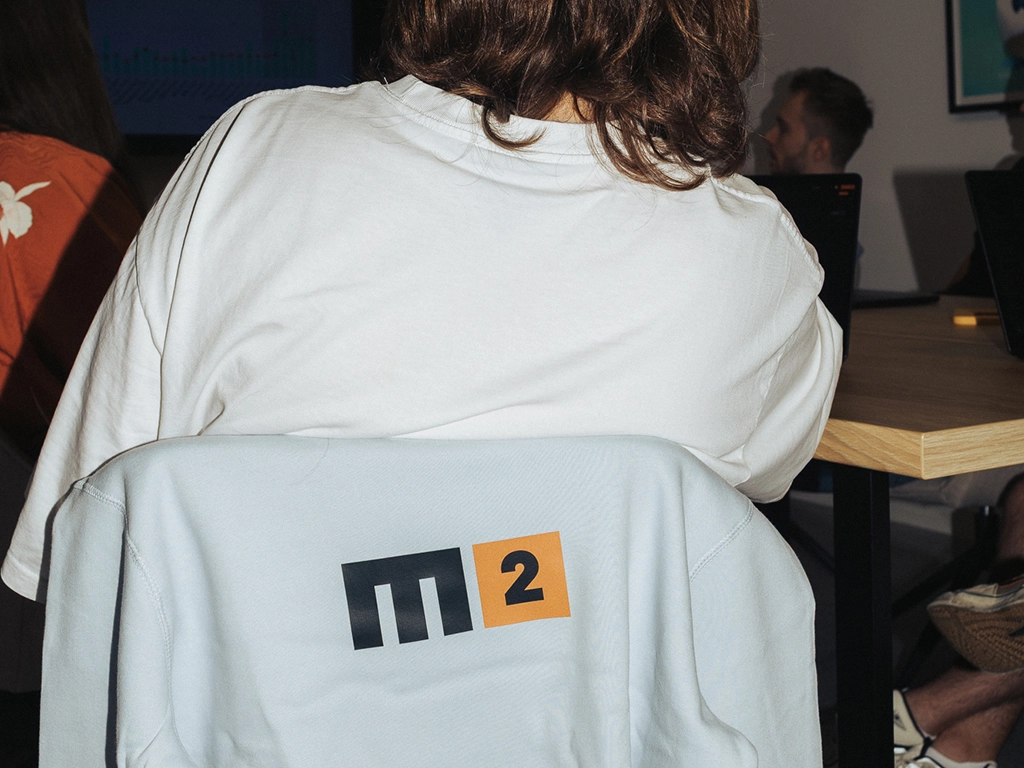How to Choose an Outsourcing Partner for App Development
Table of Contents
Outsourcing your mobile app development can save you time, money, and sleepless nights, but only if you pick the right partner. The wrong one? That could cost you way more than just your budget.
The truth is, there's no shortage of app development companies out there promising the moon. So how do you separate the pros from the pretenders? Let’s cut through the noise. In this article we’ll go through 10 must-know criteria that’ll help you confidently choose a reliable, skilled, and value-aligned outsourcing partner.
10 Key Criteria for Choosing the Right Outsourcing Partner for Mobile App Development
Here’s what to look for if you want a smooth collaboration and a successful mobile app, from MVP to launch (and beyond):
1. Mobile App Development Expertise
This might seem obvious, but it’s worth emphasizing: the outsourcing company must be great at building mobile apps, not just software in general.
Look for:
- A portfolio with live apps on both Android and iOS
- Experience with cross-platform frameworks like React Native or Flutter
- Understanding of mobile-specific design, performance, and testing
If you’re building something complex (like a real-time app, a marketplace, or a fintech solution), make sure they’ve tackled similar projects before.
2. Industry and Domain Knowledge
It’s not just about writing code—it’s about understanding your business. A fintech app has wildly different requirements than a meditation app. If your outsourcing partner has worked in your domain, they’ll likely:
- Ask smarter questions
- Anticipate edge cases
- Propose UX ideas that actually make sense for your users
According to the Clutch survey of over 500 US small business leaders, the primary motivations for outsourcing tasks were a near tie between reducing expenses and bringing industry experience onto the team.
3. Communication and Time Zone Compatibility
No matter how talented the team is, poor communication kills projects. Make sure your partner:
- Speaks fluent English
- Offers overlapping working hours with your timezone
- Is responsive on tools like Slack, Notion, Jira, or email
Try this: set up a call during the early discovery phase and pay attention to how quickly they follow up, how clearly they explain things, and how well they understand your goals.
4. Transparency in Process and Pricing
A reliable outsourcing partner will:
- Be crystal clear about what’s included
- Break down hourly rates vs fixed costs
- Share a step-by-step development roadmap
Vague pricing is a red flag. So is pushback when you ask about timelines, team structure, or deliverables.
How Long Does It Take to Make an App From Scratch?
5. Security and Intellectual Property Protection
If your app handles user data, payments, or anything sensitive, make sure your partner:
- Follows best practices in data encryption
- Signs a non-disclosure agreement (NDA)
- Clearly defines IP ownership in the contract
You should own 100% of your code, assets, and backend when the project ends. No exceptions.
According to IBM's 2023 Cost of a Data Breach Report, the global average cost of a data breach reached an all-time high of $4.45 million in 2023.
6. Tech Stack Recommendations That Make Sense
The best partners don’t just take orders—they guide you. A good outsourcing company will:
- Recommend the right tools, languages, and frameworks
- Suggest alternatives based on your budget and scale
- Think ahead to maintenance and scaling
For example, suggesting React Native for a startup MVP instead of separate native apps can cut costs in half.
7. Post-Launch Support and Maintenance
A lot of development agencies disappear after launch. That’s a problem because:
- Bugs will show up
- New OS versions will break things
- Users will request features
Ensure your partner offers:
- Maintenance packages
- Fast response times for bug fixes
- Ongoing optimization support
8. Reviews, References, and Case Studies
Don't just take their word for it. Look for:
- Verified reviews on Clutch or GoodFirms
- Detailed case studies with results
- Direct client references (you can contact!)
Try to verify that their past clients:
- Received what was promised
- Were happy with the communication
- Would work with them again
According to the G2 and Heinz Marketing report titled "The Impact of Reviews on B2B Buyers and Sellers," 92.4% of B2B buyers are more likely to purchase after reading a trusted review.
9. Cultural Fit and Collaboration Style
A team that shares your work ethic, values, and collaboration style will be easier to work with. Things to look for:
- Do they value transparency and feedback?
- Are they flexible with tools and workflows?
- Can they explain things in simple, non-jargony ways?
This gets especially important when you're dealing with a long-term product roadmap.
10. Ability to Scale the Team Up or Down
Maybe you start with an MVP and things take off. Or maybe you hit a funding freeze. Either way, flexibility matters.
Look for a partner that:
- Can bring in new developers, QA testers, or designers as needed
- Offers modular or flexible contracts
- Is open to adjusting scope and team size without drama
Red Flags to Watch Out For
1. Overpromising Low Costs
If a development partner offers a price that seems too good to be true, it probably is. Ultra-low bids can be a sign that they’re planning to cut corners—whether by rushing delivery, skipping proper testing, or assigning inexperienced developers. What looks like a bargain up front can quickly spiral into extra costs and delays when quality issues start piling up.
2. Lack of Transparency
A trustworthy partner should keep you in the loop at all stages of the project. If a team avoids sharing progress updates, is vague about their methods, or doesn’t give you access to their project management tools, that’s a red flag. Clear, consistent communication isn’t optional; it’s what keeps projects aligned and prevents misunderstandings from snowballing.
3. No Code Ownership Guarantees
It’s essential to clarify who will own the code once the project is finished. Some agencies retain ownership or recycle codebases between clients, which can lead to legal issues and technical limitations later on. You should walk away from the partnership with full rights to everything you paid for, no strings attached.
4. Poor Communication
Good communication is the foundation of a successful collaboration. If your potential partner takes too long to respond, gives unclear answers, or frequently misses calls or meetings, that’s a warning sign. These problems tend to grow worse under pressure, especially when deadlines tighten or unexpected challenges arise.
Final Checklist Before You Sign That Contract
Ask your potential partner:
- What does your app development process look like?
- Who exactly will be on the team?
- What happens if timelines shift or we need to pivot?
- Do I get full ownership of the code and assets?
- Will you be available for long-term support?
A trustworthy outsourcing partner won’t just build what you ask—they’ll help you build what your users actually need.
Where to Find Reliable Outsourcing Partners
Why Eastern Europe Is a Smart Choice
If you're outsourcing mobile app development in 2025, Eastern Europe should be at the top of your list. Here’s why:
- Highly skilled developers with strong engineering backgrounds
- Cultural and business alignment with Western clients
- Competitive pricing compared to Western Europe or the US
- Time zone overlap for both North America and EU teams
Memory2: A Trusted Partner from Poland
According to the 2023 Kearney Global Services Location Index, Poland ranks 13th overall and second in Europe (behind only the UK) for financial attractiveness and skills availability. The country is home to over 400 universities and has produced more than 400,000 IT professionals specialized in AI, cloud computing, and data science.
Memory2 is a standout mobile app development studio based in Kraków. What makes us stand out?
- A tight-knit team that actually listens to your goals
- Deep expertise in both cross-platform and native mobile development
- Transparent pricing, clean communication, and ongoing support
- A proven track record with startups and growth-stage companies
Whether you're building your first MVP or scaling an existing app, Memory2 delivers not just code, but clarity, creativity, and care. Text us with any question any time!
Conclusion
The right outsourcing partner can help turn your mobile app idea into a polished, successful product, without the stress of hiring and managing an in-house team. Use the 10 criteria above as your roadmap. Focus on communication, clarity, and trust. And when you’re ready to tap into top talent in Eastern Europe, Memory2 is here to help.
Memory Squared

Trusted by both innovative startups and large international companies.

Awarded as one of the best 2024 software companies globally
What we do
We can cover the whole process and product development life cycle but we’re also open to sending our developers and designers on a mission to join your team. We’re comfortable working closely with business managers to creatively place digital products into their strategy.








